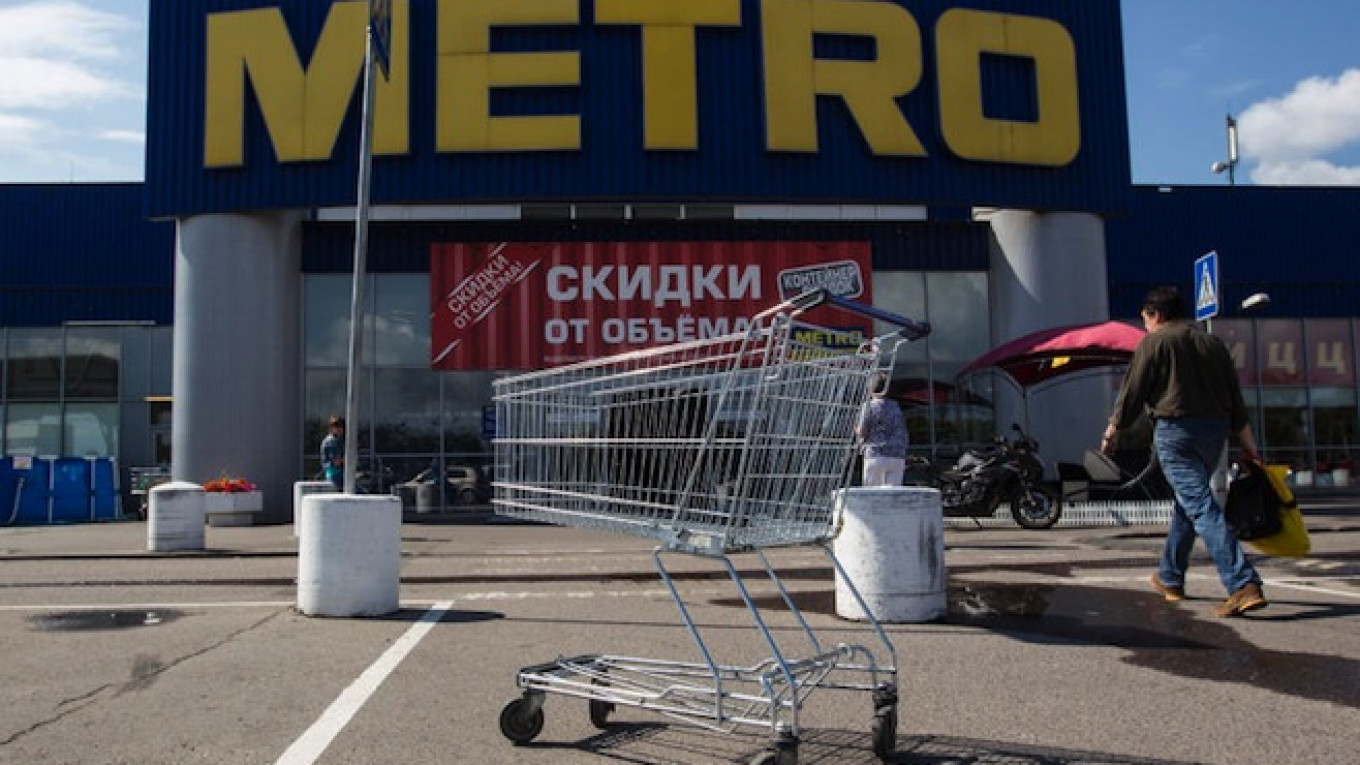The EU and the U.S. are tightening sanctions against Russia, targeting its energy, banking and defense sectors in the strongest international action yet over Moscow's support for rebels in eastern Ukraine.
Below are recent comments and decisions showing the impact on European companies of the Western sanctions and Russia's retaliatory measures:
* Russia will ban fruit, vegetables, meat, fish, milk and dairy imports from the U.S., the European Union, Australia, Canada and Norway, Russian Prime Minister Dmitry Medvedev told a government meeting on Thursday. Read more.
* Rheinmetall slashed its 2014 operating profit target after the German government withdrew its approval for a contract with Russia and the group shifted some of its automotive business to a joint venture. Read more.
* UniCredit, the banking market leader in central and eastern Europe, said the sanctions would have only a "marginal" impact on its business there. Its regional subsidiary Bank Austria forecast solid profits in Russia despite the sanctions, thanks in part to its ability to raise money locally, though it warned of lost opportunities. Read more.
* Shares of Norwegian fish farmers fall sharply on Thursday over fears that Russia, their biggest market, would ban imports as part of its planned sanctions against Western states.
* Commerzbank is not expecting to face major losses from its Russia-related business, which may be affected by the EU sanctions, Chief Financial Officer Stephan Engels said.
* German airport operator Fraport said the crisis in Russia and the prospect of further sanctions being imposed has led to considerable uncertainties regarding its stake in St. Petersburg airport.
* Russia's prime minister threatened to retaliate for the grounding of a subsidiary of national airline Aeroflot because of the EU sanctions, and one newspaper said European flights to Asia over Siberia could be banned. Read more.
* Daimler has seen booming growth in the Russian auto market weaken due to the Ukraine crisis, Chief Executive Dieter Zetsche told Germany's Bild am Sonntag newspaper. Read more.
* Part-nationalized British lender Royal Bank of Scotland said it had placed restrictions on its lending in Russia following developments in Ukraine. Read more.
* Adidas, the world's No.2 sportswear firm, cut its revenue and profit targets for this year and scrapped them for next year, blaming a plunge in sales at its golf business and its exposure to a weak Russian market. Read more.
* The head of Russia's second-largest oil producer, LUKoil , said the sanctions would force the company to reduce its investments due to limited access to funds. Read more.
* Russian mobile phone operator MegaFon said it converted its foreign currency deposits into rubles and Hong Kong dollars to protect against any further sanctions.
* Italy's Enel is not considering the sale of its Russian assets at the moment, the utility's CEO Francesco Starace said. "It is not wise to sell assets in Russia at this moment," Starace said in a conference call.
* German retailer Metro AG said conditions were still not right to list a stake in its Russian cash-and-carry business, which was postponed in March due to the Ukraine crisis.
* French oil major Total said it had stopped buying shares in Russia's Novatek when a Malaysian airliner was shot down over Ukraine, but it was still too early to gauge the impact of the sanctions. Read more.
* Oil and gas producer BP reported a sharp rise in second-quarter profits but warned further Western sanctions on Russia could harm its business there and its relationship with Russian state oil company Rosneft. Read more.
* More than 25,000 jobs are at risk in Germany following the fresh sanctions, the German Committee on Eastern European Economic Relations said. "Further damage is looming for the European and especially the German export industry. More than 25,000 jobs are in danger in Germany alone," it said.
A Message from The Moscow Times:
Dear readers,
We are facing unprecedented challenges. Russia's Prosecutor General's Office has designated The Moscow Times as an "undesirable" organization, criminalizing our work and putting our staff at risk of prosecution. This follows our earlier unjust labeling as a "foreign agent."
These actions are direct attempts to silence independent journalism in Russia. The authorities claim our work "discredits the decisions of the Russian leadership." We see things differently: we strive to provide accurate, unbiased reporting on Russia.
We, the journalists of The Moscow Times, refuse to be silenced. But to continue our work, we need your help.
Your support, no matter how small, makes a world of difference. If you can, please support us monthly starting from just $2. It's quick to set up, and every contribution makes a significant impact.
By supporting The Moscow Times, you're defending open, independent journalism in the face of repression. Thank you for standing with us.
Remind me later.


